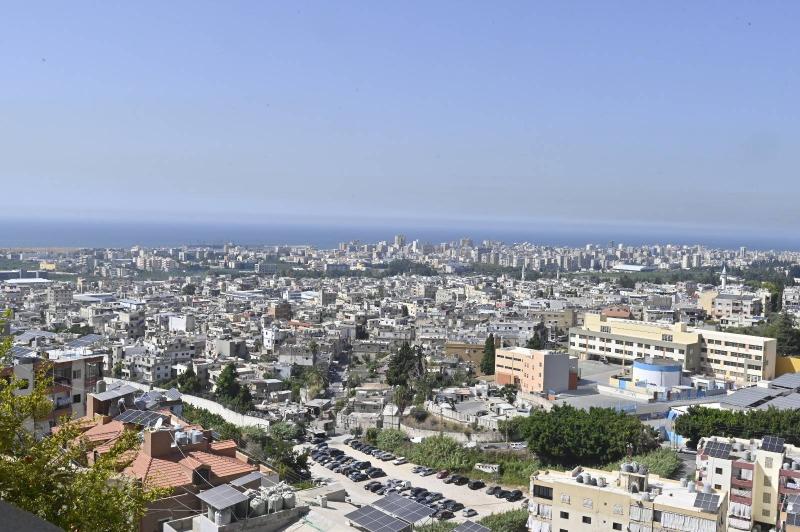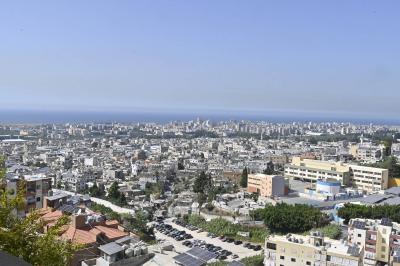The ceasefire decision in Ain al-Hilweh camp came into effect on Thursday at 6 PM, following agreements reached in meetings held by Speaker Nabih Berri with Azzam al-Ahmad and Musa Abu Marzouk. The camp is experiencing a relative calm, occasionally disrupted by sounds of gunfire and explosions, raising hopes that the truce will not collapse as it has in past attempts. Reports indicate renewed clashes in the evening despite the ceasefire taking effect, with gunfire and explosions heard from within the camp; however, the intensity of the confrontations is less compared to before the truce agreement.
Fatah movement sources stated they would give the opposing party "one last chance to stabilize the ceasefire and hand over the murderers of al-Armoushi and evacuate schools from armed individuals."
Following the announcement of the ceasefire, Ali Faisal, Deputy Chairman of the Palestinian National Council and member of the Democratic Front for the Liberation of Palestine's Political Bureau, communicated with Speaker Nabih Berri, thanking him for the "valuable efforts by the Palestinian people and their factions, culminating in a comprehensive ceasefire in Ain al-Hilweh camp." Berri confirmed during the call, according to Faisal's statement, that he would "personally monitor the ceasefire decision," emphasizing the need for everyone to adhere to this decision due to the serious implications of ongoing events on the Palestinian cause.
Faisal also made several calls to Lebanese and Palestinian factions and political and spiritual figures to "ensure the respect of the ceasefire, protect Ain al-Hilweh camp and its residents from any disruption of security and stability, and bolster the security and stability of the Lebanese neighborhood."
### The Ongoing Violence
The latest round of clashes in Ain al-Hilweh camp has entered its first week with no solutions in sight, despite efforts to halt the violent events that have escalated in Sidon and the surrounding region due to these clashes, which peaked yesterday afternoon with intensified fighting across multiple fronts that continued after midnight. The clashes have seen the use of flares for the first time in the camp, accompanied by new types of artillery and rocket shells whose explosions were heard from afar in the depth of the south, igniting fires within homes located in the areas of conflict.
The recent round of violence, deemed the most intense, renewed in the morning across all fronts. Since the outbreak of hostilities last Thursday, the toll has reached 15 dead and more than 150 injured.
### Army Commander's Visit to Sidon
For the first time since the outbreak of hostilities, Army Commander General Joseph Aoun visited the First Infantry Brigade and listened to a briefing on the operations being conducted amidst the fighting in Ain al-Hilweh camp. Musa Abu Marzouk, a member of Hamas' Political Bureau, stated after his meeting with President Nabih Berri, that "all acts of gunfire targeting the Palestinian people in Ain al-Hilweh camp are deemed suspicious operations unrelated to the Palestinian cause and not part of any effort to enforce security."
### Discussions on the Situation in Ain al-Hilweh
The situation in Ain al-Hilweh camp was a focal point in a meeting between Bassam Hamoud, the Deputy Head of the Islamic Group's Political Bureau in Lebanon, and Osama Saad, the Secretary-General of the Nasirist Popular Organization. The two reiterated their call for an immediate ceasefire and the implementation of the five-point consensus derived from meetings of the Palestinian Joint Action Committee in Lebanon. They both emphasized that "the biggest loser from these clashes is the Palestinian cause, which many seek to eliminate by destroying Ain al-Hilweh camp, representing a capital for the Palestinian diaspora and the right of return."
They warned that "Sidon, which hosts Ain al-Hilweh camp and the Palestinian people and their just cause, can no longer remain silent about the impacts on its security, stability, and economy."
The two announced that their meetings would remain open as they sought to solidify a ceasefire and work towards returning stability to the camp and Sidon.
### Islamic Jihad and Hamas Talks
The developments in the camp were also discussed between Ziad al-Nakhala, Secretary-General of the Islamic Jihad Movement in Palestine, and a leadership delegation from Hamas, which included Musa Abu Marzouk and other officials. They expressed in a joint statement their concern about the violence occurring in Ain al-Hilweh camp, which led to numerous casualties, destruction of homes, and disruption of life for residents.
They stated that "the infighting contradicts the will of the Palestinian people and serves only the Israeli enemy and questionable projects targeting Palestinian camps, aiming to eliminate the issue of refugees." They condemned any internal conflict from any party and called for an immediate cessation of hostilities.
### Popular Front for the Liberation of Palestine Statement
The Popular Front for the Liberation of Palestine condemned the violence in Ain al-Hilweh camp, stating that the bloodshed damages the struggle of the Palestinian people. In a statement from its leadership in Lebanon, they urged all fighters to fully adhere to the ceasefire and implement previously agreed decisions.
They called for an immediate return of displaced persons to their homes in the camp and highlighted that the outbreak of the recent crisis at this time raises many suspicions, especially given Lebanon's ongoing severe economic and social crises.
The organization expressed strong denunciation of attacks on Lebanese Army sites surrounding the camp and solidarity with the injured, while condemning the random shelling and stray bullets affecting Sidon and its surroundings, emphasizing the sanctity of Palestinian blood and a collective Palestinian effort to confront external agendas.
### Arab Unity Forum's Stance
The Arab Unity Forum commented on the renewed fierce battles between Palestinian factions within Ain al-Hilweh camp, announcing that these conflicts appeared to be pre-planned by regional and international actors in concert with certain factions and some Lebanese authority elements. It pointed to UNRWA's prior arrangements to rent schools outside Ain al-Hilweh as significant evidence of an American-planned conflict.




